For my mom, who would be so proud.
Feeling overwhelmed by how long it takes you to clean your home? Worried about the potentially harmful chemicals in so many store-bought cleaners? Its time to embrace Cleaning Hacks and make cleaning faster, more natural, and easier!
Did you know you could clean 99.9% of the bacteria off your sponge by putting it in the microwave for just 2 minutes?
Or that you could use a rubber glove to clean up pet hair instead of a lint brush?
Or that waxed paper can be used to make your faucets and sink fixtures shine instead of a chemical polish?
Cleaning can seem like a never-ending taskmake it easier and faster with these more than five hundred simple and all-natural cleaning hacks. All-natural cleaning may seem like a new trend, but these DIY recipes and tricks have been around for generations and are still going strong because they work. The cleaners and methods in this book are safe to use around children and pets, and your home will be just as clean, or even cleaner, than before! While standard commercial cleaners can actually cause or aggravate existing health conditions, natural cleaners can even help alleviate symptoms such as allergies, asthma and other respiratory problems, autoimmune diseases, and more.
Cleaning Hacks is packed with short hacks, which are simple tips and tricks that quickly solve a common problem; lists that go more in-depth by offering various solutions for one cleaning project; and DIY recipes to make your own cleaners with affordable ingredients you know you can trust to clean and disinfect your home without sacrificing your familys health and safety.
Combined, all the different hacks in this book will help you save money, reduce your exposure to dangerous ingredients found in commercial household cleaners, and streamline your cleaning schedule to give you more free time to enjoy other activities. Lets get cleaning!
1. NATURAL CLEANING 101
If youre new to natural cleaning, you may feel intimidated by the transition from readily available commercial cleaners to a whole new method of cleaning. In reality, it isnt any more difficult than using harsh chemicals, and it can even prove to be simpler, faster, and more cost-effective. If youre worried about cost, you can transition to natural cleaning in incremental steps. Continue to use your standard cleaners until you run out so you dont waste money youve already spent. Then you can slowly replace those old cleaners with the supplies discussed in this book. And remember, these all-natural options can improve your familys health and quality of life.
Basic Cleaning Supplies
While its true that store-bought natural cleansers can cost more than their conventional counterparts, many natural cleaners use common and inexpensive ingredients that you may already have in your homeso consider making your own! Any ingredients you may need to purchase are readily available and usually cost less and last longer than chemical cleaners. Here are some basic supplies you should have on hand to transition to natural cleaning:
 All-natural dish soap (store-bought or homemade)
All-natural dish soap (store-bought or homemade)
 Baking soda
Baking soda
 Borax
Borax
 Castile soap or Sal Suds
Castile soap or Sal Suds
 Containers for DIY cleaning recipes, preferably glass
Containers for DIY cleaning recipes, preferably glass
 Cooking salt
Cooking salt
 Distilled water (optional)
Distilled water (optional)
 Essential oils (optional)
Essential oils (optional)
 Food-grade diatomaceous earth
Food-grade diatomaceous earth
 Hydrogen peroxide (3%)
Hydrogen peroxide (3%)
 Microfiber cloths
Microfiber cloths
 Polishing cloths
Polishing cloths
 Vegetable oil
Vegetable oil
 Vodka or rubbing alcohol
Vodka or rubbing alcohol
 Washing soda
Washing soda
 White vinegar
White vinegar
Safety Tip
Even though these ingredients are deemed safer than commercial alternatives, its still a good idea to keep them out of reach of children and pets and never ingest these products unless you know theyre edible (e.g., baking soda, salt, cooking oil, and vinegar).
You probably already own a good number of these ingredients, and if not, you could buy them at a local grocery store. Lets take a closer look at some.
Baking Soda versus Washing Soda
Baking soda (sodium bicarbonate) is perhaps the most common and useful ingredient in natural cleaning. Its abrasive, making it a fantastic natural scouring agent. It also helps absorb moisture and neutralize odors and can last up to 6 months when stored in an airtight container. Never store baking soda and vinegar mixtures in a closed container. When these two ingredients are mixed together, they form an explosive reaction, which can prove dangerous in enclosed spaces.
Washing soda , also called sodium carbonate or soda ash , is a natural cleaner, water softener for hard water, and degreaser with loads of uses throughout the home. Its original use was as a laundry detergent booster. Hard water contains minerals that adhere to laundry, appliances, and other surfaces in your home, making cleaning more difficult. These minerals can clog pipes and stain clothes and surfaces, including bathtubs and showers, sinks, washing machines, and dishes. Washing soda softens water by forming a chemical reaction wherein the calcium ions in the washing soda bind to the minerals and wash them away instead of letting them stick to fabrics and surfaces. Softening hard water prevents stains, helps appliances run better, and allows cleaning products to work more effectively. Soft water is also more economical since you can use less soap and detergent to clean and your appliances will last longer when they arent clogged with mineral buildup. It is often likened to baking soda, but the two ingredients are actually different compounds that can be used in different ways. Perhaps even more confusing is the fact that you can make your own washing soda from baking soda (learn more about this in Chapter 6). Here is some more information about washing soda:
Washing soda is more abrasive than baking soda and, like baking soda, can scratch delicate surfaces, so its important to test a small area before using as a scrubbing agent.
You can find washing soda in most grocery, big-box, and health food stores or online.
Be sure to handle washing soda with care. As with any highly alkaline substance, undiluted washing soda can damage skin and eyes and is not safe to eat or inhale. Always wear gloves when cleaning with washing soda, and keep it away from kids and pets. However, washing soda is still considered a safe ingredient for natural cleaning and has an A rating for safety from the Environmental Working Group.



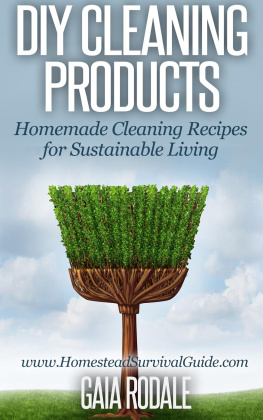
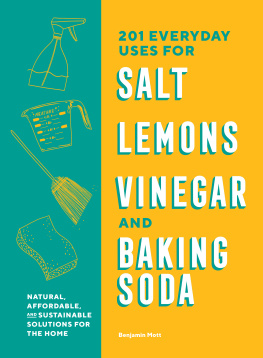
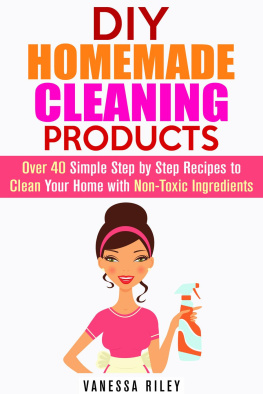
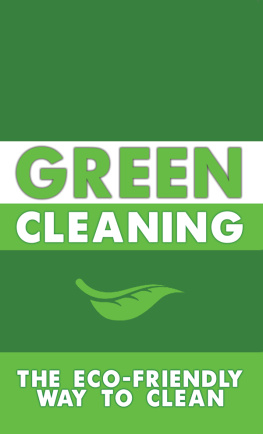
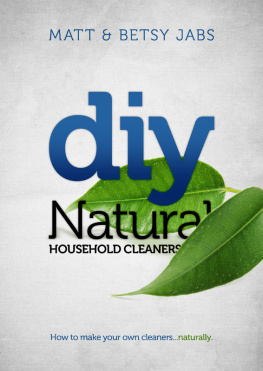
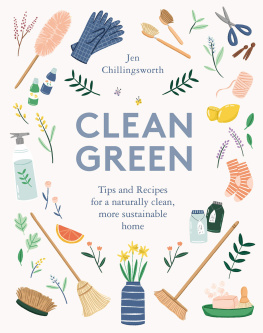
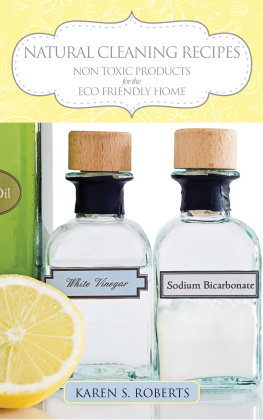

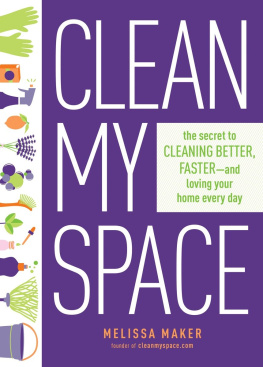
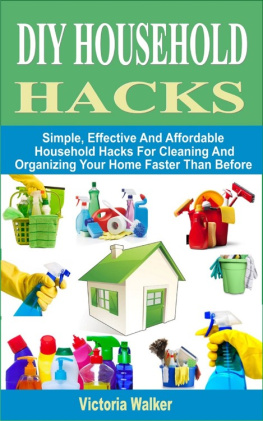
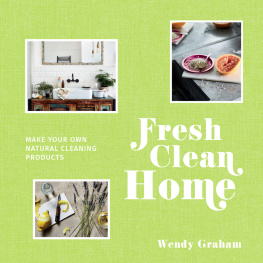
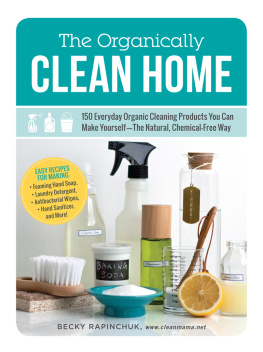
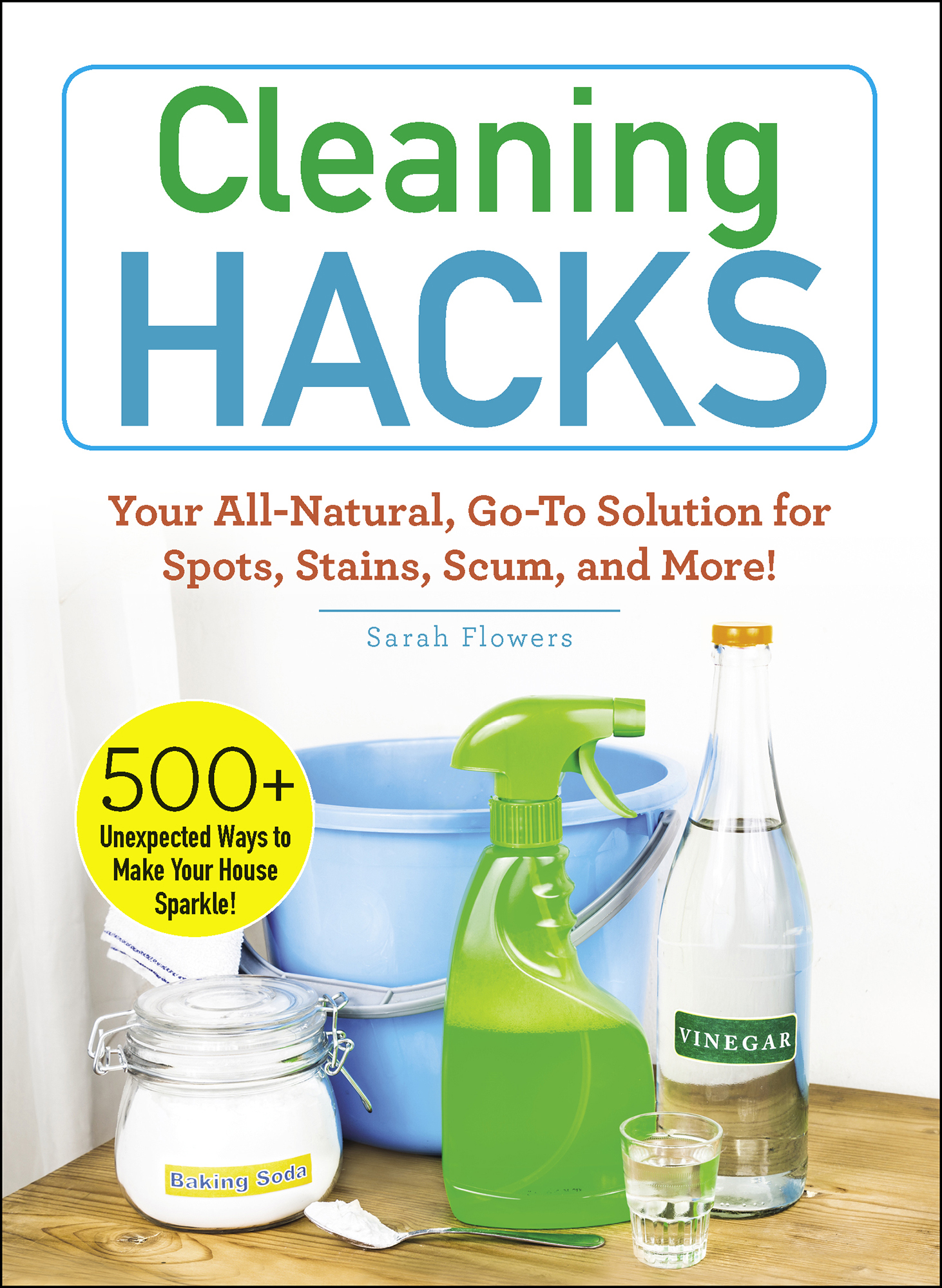

 All-natural dish soap (store-bought or homemade)
All-natural dish soap (store-bought or homemade)